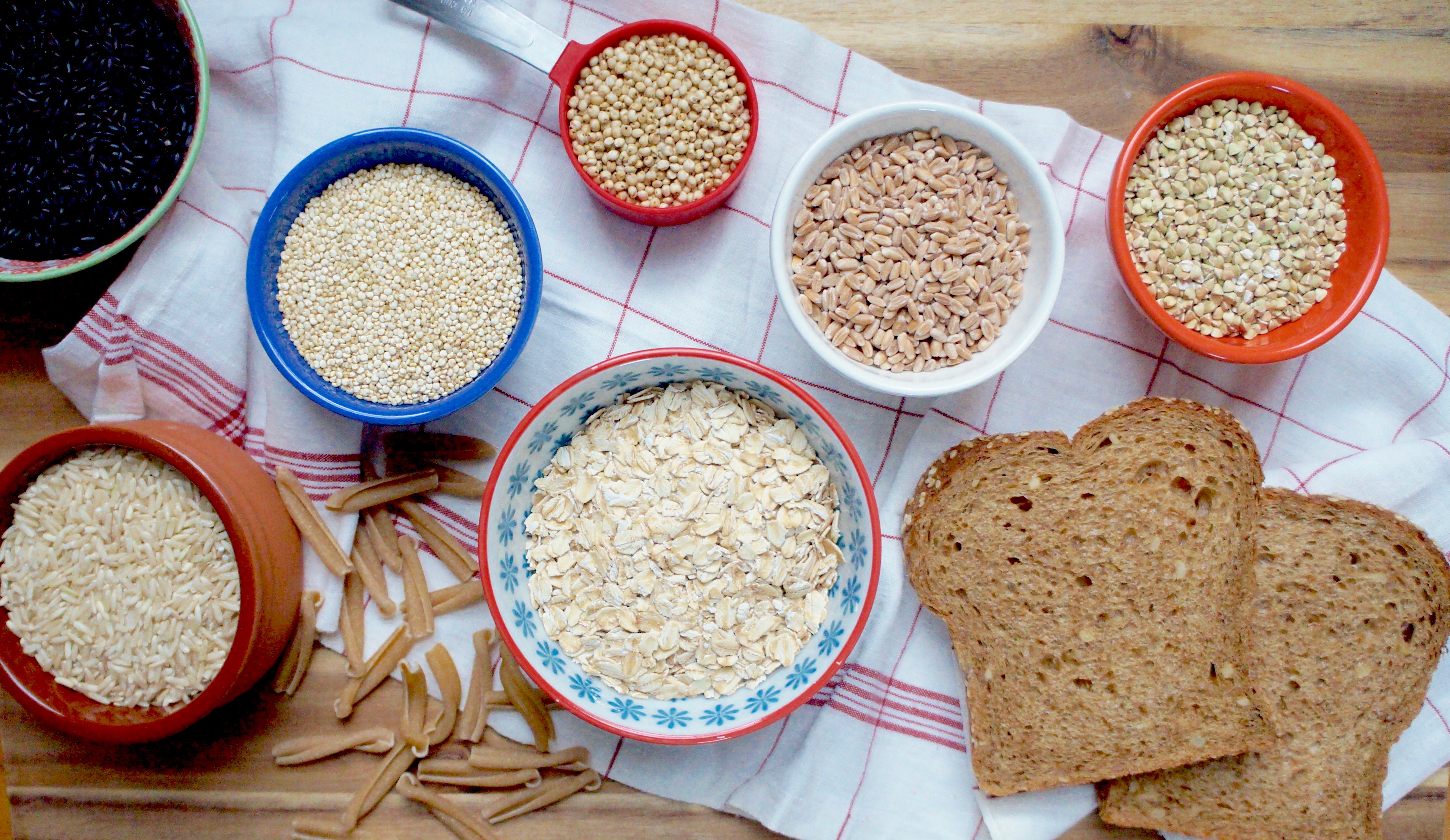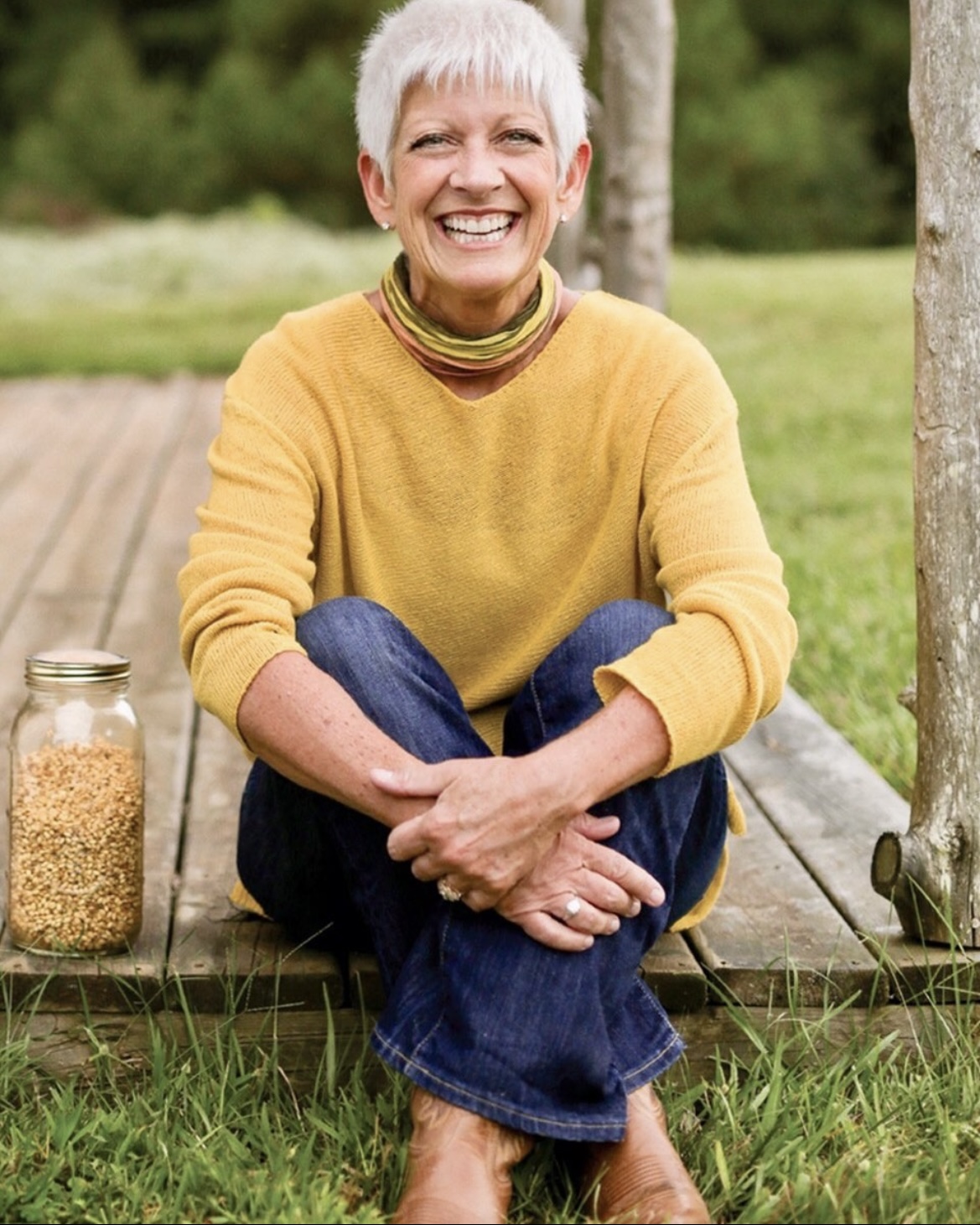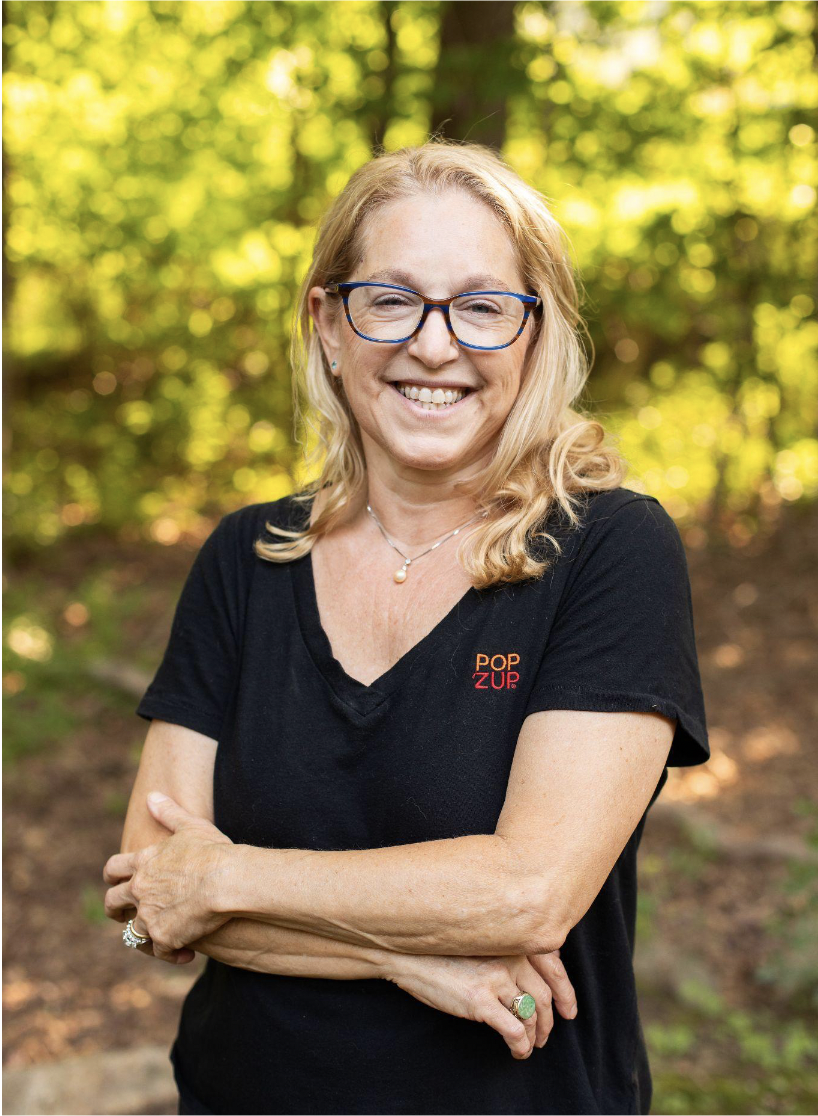Share This
Both the Whole Grains Council and Oldways staff are almost entirely women, which recently had me thinking about how many wonderful woman-owned businesses are among the WGC’s ranks. Wanting to feature those voices, I reached out to several of our woman-owned member companies to get their perspectives on the whole grain industry. Their businesses run the gamut from small start-ups to one of the biggest in their field, but they all share a love of whole grains and a passion for healthy, whole foods that consumers can feel good about eating. Read on for their perspectives on the whole grain industry, their struggles and successes, and their advice for other women in the field.
Our four interviewees are:
Uche Jumbo, who founded her company Choputa in 2019, brings a Nigerian breakfast staple, fonio porridge, to the table in a quick, easy-to-prepare package.
Julie Lapham, who started Popzup Popcorn with her husband in 2015 to offer a microwavable popcorn that would be good for the body and the environment.
Peggy Sutton, who grew her sprouted grain business To Your Health Sprouted Flour Co. from a one-woman show into the largest producer of organic sprouted grain flours in the US.
Rhonda Wiedenbeck, whose Beck’s Bakery brings wholesome, locally-sourced whole grain breads to a growing group of whole-grain fanatics in California.
On what drew them to whole grains
Uche Jumbo (Choputa): Fonio is a popular grain in the Northern regions of Nigeria, and can be cooked in many different ways. The vast nature of how you can eat fonio and the earthy richness that comes with the grain sparked a sense of curiosity in me. I wondered, how can I amplify this “grain of goodness” as I call it! Throughout my over twelve years in the CPG industry, I would ask myself, how can I create something from West Africa (where I am from) that showcases its richness in nutrition, as well as something new, discoverable and healthy for American consumers (where I live now).
Julie Lapham (Popzup Popcorn): We wanted to offer popcorn to people who cared about eating healthy and nutritious snacks. I come from a natural foods background, my husband owned a design firm for 35 years. We started Popzup Popcorn just to do the right thing, to be accountable and transparent. We didn’t want to create anything that would be harmful to people or the environment, so we use local grains, farm fresh, whole food ingredients, our packaging is recyclable. Our products naturally appeal to people who care about what they eat, and for me it seems natural that someone like that would care about whole grains.
Peggy Sutton (To Your Health): It was a personal endeavor, I was looking to prepare more nutritious foods for my family. I’m the daughter of a generational farmer, and we ate what we grew. Longevity on that side was fabulous! Because of that I was looking into traditional, ancestral foods, as well as the absence of health conditions like heart attacks in past generations. I found research that talked about grains being more nutritious in the past because they were sprouted in the field. From there, I found a process for sprouting grains at home, baked a loaf of bread with the results, and the rest is history!
Rhonda Wiedenbeck (Beck’s Bakery): I’ve always had an interest in nutrition, and I’ve always loved rich, seedy bread. As an adult I was experimenting with bread baking at home, and just decided this was the way to go. I eventually took a few classes at the San Francisco Baking Institute, where I ended up taking a whole grain baking class. That class was largely French style breads, and only 1-2 of the breads were really whole grain. Then I did a German baking class, and they used a much wider range of whole grains. Through that, I just fell in love with whole grains.
On what sets them apart
Uche Jumbo (Choputa): I’d like to think my science background made me lean more into product innovation, and food regulatory compliance. It is my life, my career, my experience, all those created the entrepreneur in me! Growing up, my mom always had a business or two, so I have her to thank for that foundational element. In my career journey I’ve done a lot of innovation (creating teams, new processes, new buildings), that built a lot of the muscles I have for launching new ideas.
Julie Lapham (Popzup Popcorn): We care a lot about where our ingredients come from, we use pure fresh ingredients right from local farms. We work with a 4th generation family-owned popcorn farm, along with a local farm who we’re working with to plant next year’s crop. For an upcoming new popcorn flavor we reached out to the best ingredient sources in Italy to get the right balance of flavor. It’s important to know that everything is made in our own community, or with the best ingredients.
We also really care about our employees, they’re like family, and in turn, they take pride in the popcorn they’re making. You can’t have a good product unless you care about the ingredients and the people making it. We hear from customers all the time that this is what they’ve been looking for, that they buy cases of it. It’s simple.
On whole grains over the years
Peggy Sutton (To Your Health): We’re wrapping up year 18 in business with whole grains! There have been several trends over the years swaying the market in various directions—there’s been the zero-grain keto trend, and before that there was the demonization of gluten. But, as most trends, they have since been debunked. People will jump on them for a while and there will be a dip in whole grain consumption, but then appreciation of grains comes right back.
Julie Lapham (Popzup Popcorn): Interest in whole grain goes along with interest in all-natural, nutrient-dense foods. If you look at the ingredients of foods like that, the whole industry has just blown up. There’s a huge awareness and market for people that care about eating healthy, whole foods. Interest in whole grains has naturally increased along with consumer interest in having a healthier life and healthier food. And popcorn really is an ancient grain, and it’s been there all along. Demand for it is just as high as ever!
On the challenges of using whole grains…
Uche Jumbo (Choputa): It’s mainly education and awareness on the benefits of this ancient super grain (fonio). It’s challenging as a woman owned small business to get the word out there within a small budget. That push for awareness, especially as I plan to get into retail stores this fall, has been the biggest challenge.
Rhonda Wiedenbeck (Beck’s Bakery): Whole wheat flour is nothing like white flour, which is so damn easy. With local whole grains, there were seasonal changes, moisture variations, changes in protein content, from yield to yield, and I had to learn how to adapt to that. But working with the same farmers year after year has really helped. The other challenge was getting over this internalized idea that bread should be white, and fluffy, and full of holes… But once I got over that, I realized people aren’t buying my bread because it looks a certain way, but because it tastes good! Now I highlight my bread for its dense, seedy texture, rather than seeing it as a detriment.
…and their benefits
Peggy Sutton (To Your Health): Increased nutrition. Sprouting also reduces the kneading time when baking dough, the rising time. For the at-home baker, it saves time, for the commercial bakery it’s a bottom-line saver. Sprouting also brings out the individual taste of the grains– it actually removes the bitterness. We get great testimonies from customers who love baking with our flour. Those testimonies make it all worthwhile! We recently heard from a customer whose husband hadn’t been able to eat bread for 20 years. She baked him a loaf with our sprouted spelt flour and he was able to eat it without a reaction! Another customer made sprouted flour cookies for her son who had been taken off grain, and he did not have a bad reaction. The sheer joy of a child being able to enjoy a cookie again, that puts it all into perspective for us and reminds us why we do this.
Rhonda Wiedenbeck (Beck’s Bakery): When the pandemic hit, I lost half of my business—almost all of my restaurant/foodservice customers. But there was this upsurge in interest in farmers markets and buying local at the same time. I decided to just focus on making what I wanted to make, which was whole grain bread. I went back to the farmers’ markets with my whole grain breads, and people just went nuts. Now I think I’ve found my tribe. My customers now are very adamant that they want whole grains. Everything I make now is 95-100% whole grain.
Messages for other women in the whole grain field
Uche Jumbo (Choputa): The main thing I would say is just start, build your community. It may be very difficult, but there are people out there willing to help. Many of us that are still trying to figure out what to do are happy to pass on anything we have figured out to those who are still working on it. I also recommend joining founder’s groups. Joining an entrepreneurs’ group, you’ll meet peers, see products similar to yours, you’ll be talking to people who share the same goals and are facing the same struggles.
Rhonda Wiedenbeck (Beck’s Bakery): There is an opportunity there, there really are folks who really want this. The options in stores are tasty and fine, but you can really offer whole new flavor profiles for people that they’re just floored by. Just begin testing the whole recipes that are out there, just research and get really good at making one recipe that you’re really sure about, then riff off of that one. Then you can try changing the percentages of wheat or rye. Don’t be afraid! Your bread won’t be picture-perfect white bread, but it will be “instagrammable” in its own way!
Peggy Sutton (To Your Health): Whole grain is a component of a healthy diet. The consumption of WG is on an upswing, even in just the last 5-6 years. The market analysis for the next few years looks really promising, so if you’re interested in being entrepreneurial and starting a bakery, or using them in a restaurant, or as a private chef, there are so many opportunities for women who are considering all the ways to get involved with whole grains.
Julie Lapham (Popzup Popcorn): Just keep it simple! Start with fresh quality ingredients. Follow your passion. If a woman out there has a passion for eating healthy, then follow that and keep it simple.
Thank you to our four interviewees for their time and expertise. We look forward to what’s next for them and all of the other wonderful woman-owned members of the Whole Grains Council. (Rebecca)
To have our Oldways Whole Grains Council blog posts (and more whole grain bonus content!) delivered to your inbox, sign up for our monthly email newsletter, called Just Ask for Whole Grains.






Add a Comment